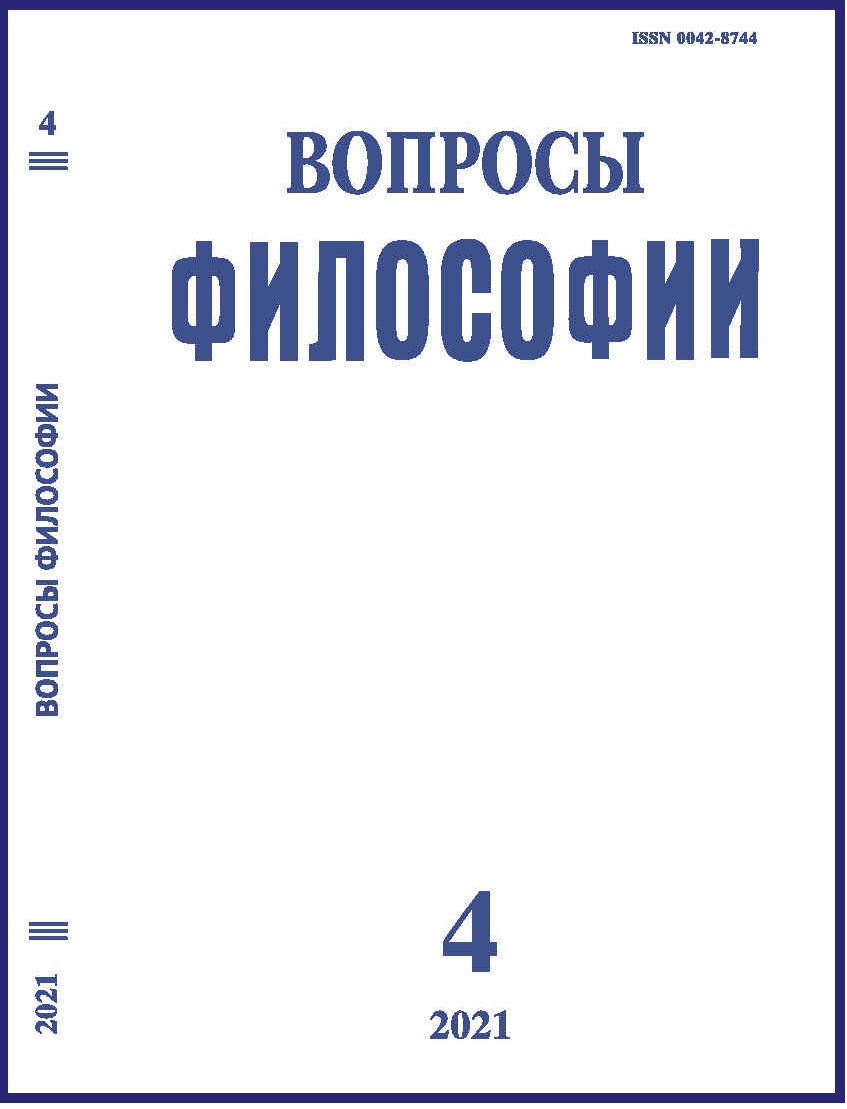The Paradoxes of Religious Consciousness: Leo Tolstoy in the Philosophical Criticism of Nicholai Berdyaev
DOI:
https://doi.org/10.21146/0042-8744-2021-4-53-63Keywords:
religious consciousness, criticism, ethics, nihilism, personalism, metaphysics, eschatology, Nikolai Berdyaev, Leo TolstoyAbstract
The article is devoted to the analysis of N.A. Berdyaev’s perception of L.N. Tolstoy’s work. Berdyaev’s philosophical criticism of the writer requires close attention and research because it allows us to formulate the most important question about philosophical vocabulary of Russian religious thinker. The essay examines not only Berdyaev’s critical interpretation of Tolstoy in its movement, but also the personal perception by the philosopher of Tolstoy as a great Russian writer. This paper explores the evolution of Berdyaev’s views on the problem of religious consciousness of Leo Tolstoy. I reveal the structural elements of Berdyaev’s personalistic metaphysics and analyze the main ideas of his eschatological ethics from the perspective of philosophical criticism of Tolstoy. I consider the modus of Berdyaev’s assessment of Tolstoy’s nihilism and discuss the ambiguity and complexity of Berdyaev’s attitude to the writer and religious thinker. This problem manifested itself, on the one hand, in Berdyaev’s identifying himself as a Russian thinker and a heir to the tradition of Solovyov, Dostoevsky and Tolstoy, on the other hand, in sharp criticism of Tolstoy for his role in the crisis of Russian religious consciousness, which had irreversible consequences for the Russian state and society. This analysis proposes a new opinion on philosophical criticism of Berdyaev, as distinct from the traditional version, and introduces the thesaurus research strategy on Berdyaev’s religious philosophy.

